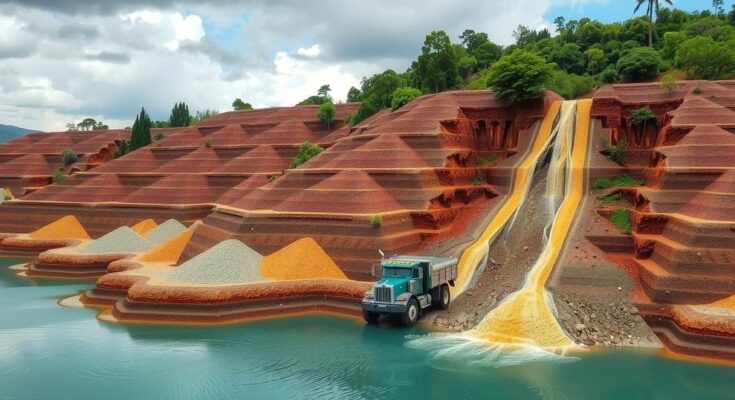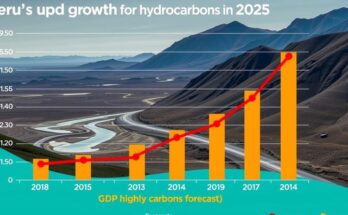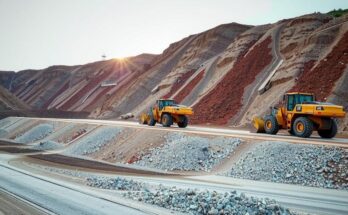El Salvador’s Legislative Assembly has approved a new mining law to facilitate gold exploitation, removing the previous ban. The law gives the state a monopoly on mining activities, allowing partnerships with foreign companies. President Bukele cited potential economic benefits from the country’s significant gold reserves, while environmentalists raise concerns about ecological impacts.
On Monday, the Legislative Assembly of El Salvador enacted a new mining law, facilitating the country’s prospective gold exploitation. This legislation repealed the previous metallic mining ban, as had been foreshadowed by President Nayib Bukele. The law now grants the Salvadoran government a monopoly over metallic mining activities, with the potential to form partnerships with foreign entities to extract its mineral wealth. Bukele expressed that the prior prohibition was “absurd,” as El Salvador uniquely maintained such restrictions among nations.
The recently approved General Mining Law emphasizes the potential of the Salvadoran territory’s estimated $3 trillion gold reserves as a catalyst for economic enhancement. President Bukele stated that rational utilization of this wealth is essential to improve the population’s quality of life while ensuring environmental respect. The law purports to incorporate environmental safeguards by prohibiting harmful substances, like mercury, traditionally utilized in mining.
However, the legislation has attracted significant criticism from environmental advocates who argue that gold extraction under El Salvador’s conditions poses substantial ecological risks. Andrew McKinley, an environmentalist, warned that gold extraction would necessitate extensive labor and water resources, possibly resulting in severe environmental degradation. He emphasized the likelihood of creating extensive damage in a brief timeframe, figuratively comparing the landscape’s future to that of the Moon with numerous craters.
Additionally, skepticism surrounds President Bukele’s claims regarding the vastness of the gold reserves. Pedro Cabezas, the coordinator of Acafremin, a Central American anti-mining organization, expressed concern that the figures presented may be exaggerated. He articulated, “Knowing the president’s announcements, we would not be surprised if he exaggerates the numbers.” In pursuit of validation, President Bukele has invited international geologists to investigate the viability of El Salvador’s gold deposits and extraction possibilities.
The new mining legislation in El Salvador marks a significant policy shift from an outright ban on metallic mining to a framework that allows for its regulation and exploitation. This change is particularly noteworthy given the geopolitical and environmental context within which it occurs. Environmentalists, government officials, and economists have raised concerns and optimism, respectively, about both the potential economic benefits and the ecological ramifications of mining activities. The controversies surrounding Bukele’s administration’s claims regarding the country’s mineral reserves further complicate the discourse surrounding this issue. This new law could redefine the economic landscape of El Salvador, yet it also raises critical questions about environmental sustainability and resource management.
In conclusion, El Salvador’s new mining law signals a pivotal change in its approach to resource extraction, specifically gold mining. While the government touts the potential economic benefits of exploiting its significant gold reserves, environmental activists highlight the serious ecological threats this endeavor may pose. The skepticism surrounding the government’s claims about these reserves adds another layer of complexity to the situation. As the nation navigates the intricacies of this law, the balance between economic growth and environmental preservation remains a central topic of debate.
Original Source: news.bitcoin.com




